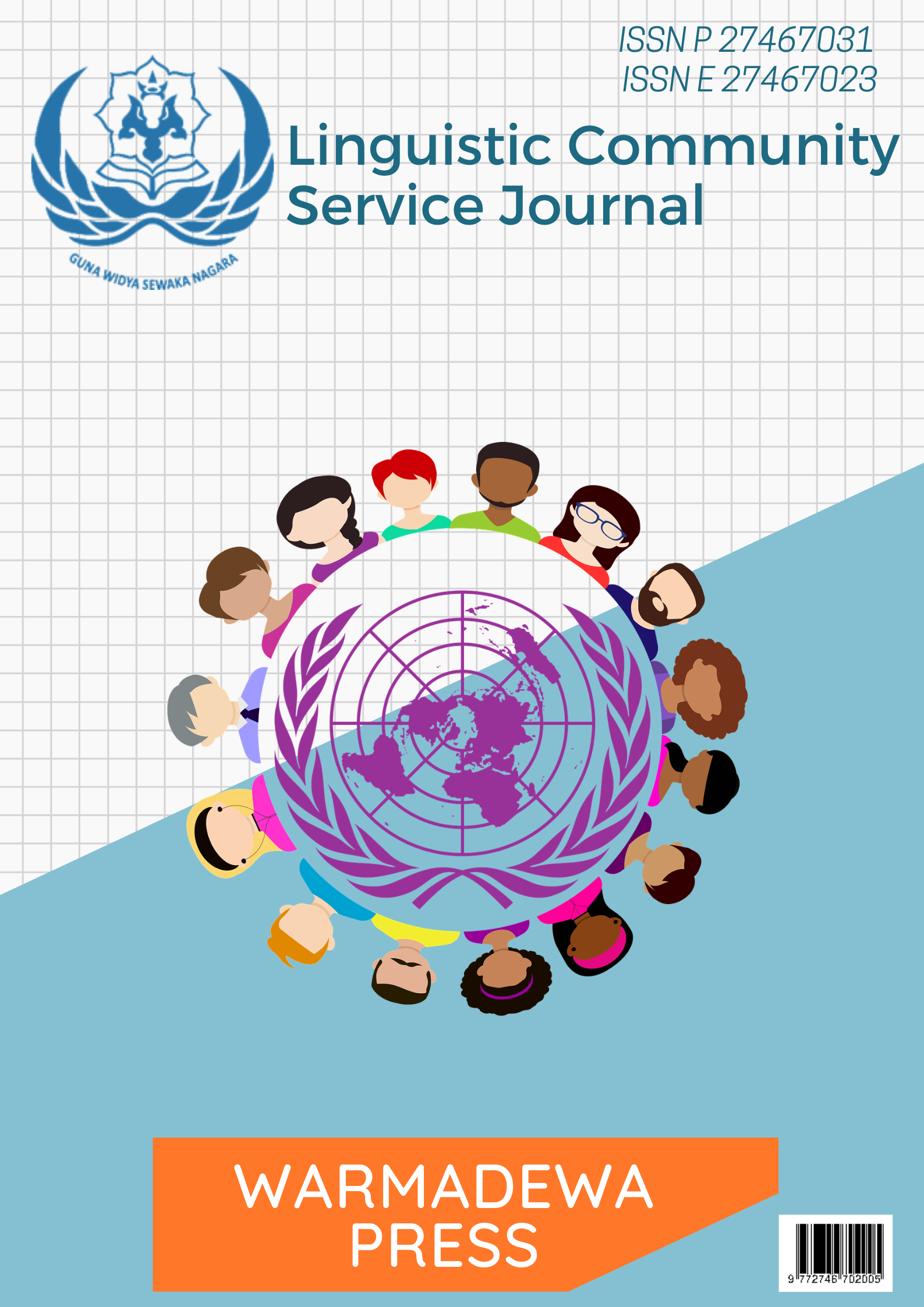Kendala dalam Belajar Bahasa Inggris dan Cara Mengatasinya
Abstract
Language plays a crucial role in life, one of the roles of language is to communicate ideas to others. Language skills are the basic element for everyone to express themselves in the form of feelings, desires, opinions and needs of each individual. The more languages ​​a person knows, the easier it will to communicate, one of them is learning English. Understanding of English must be strengthened to rising generation especially students, due to globalization which requires society to speak English. For Indonesian, the use of English is still an obstacle due to a lack of understanding of the meaning of the language itself, students must be able to write and pronounce English words with different spellings. This complexity makes students or children less interested in learning English. The development of tourism in Bali is growing swiftly, this can be proven by the increasing number of visits by local and foreign tourists. To expand interaction, then must be able to master foreign languages, one of them is English. It is realized that the ability to speak English is crucial in the field of tourism, so it is necessary to prepare provisions for children to be able to communicate using English. Based on this, the Master of Linguistics of Warmadewa University through its Community Service activities held training in the form of teaching English about obstacles in learning English and how to overcome them. This study was designed to determine the obstacles to learning English for children and to increase students' interest in learning English. This research used a case study research type. Technique of collecting data in groups, namely asking about the problems experienced when learning English. The results of this study are that community service activities run well and structured in order to find solutions to the main problems, that is knowing the obstacles in learning English and how to overcome them.
This journal provides immediate open access to its content on the principle that making research freely available to the public supports a greater global exchange of knowledge.
All articles published Open Access will be immediately and permanently free for everyone to read and download. We are continuously working with our author communities to select the best choice of license options, currently being defined for this journal as follows: Creative Commons-Non Ceomercial-Attribution-ShareAlike (CC BY-NC-SA)
 Abstract viewed = 15094 times
Abstract viewed = 15094 times
 PDF downloaded = 52306 times
PDF downloaded = 52306 times














